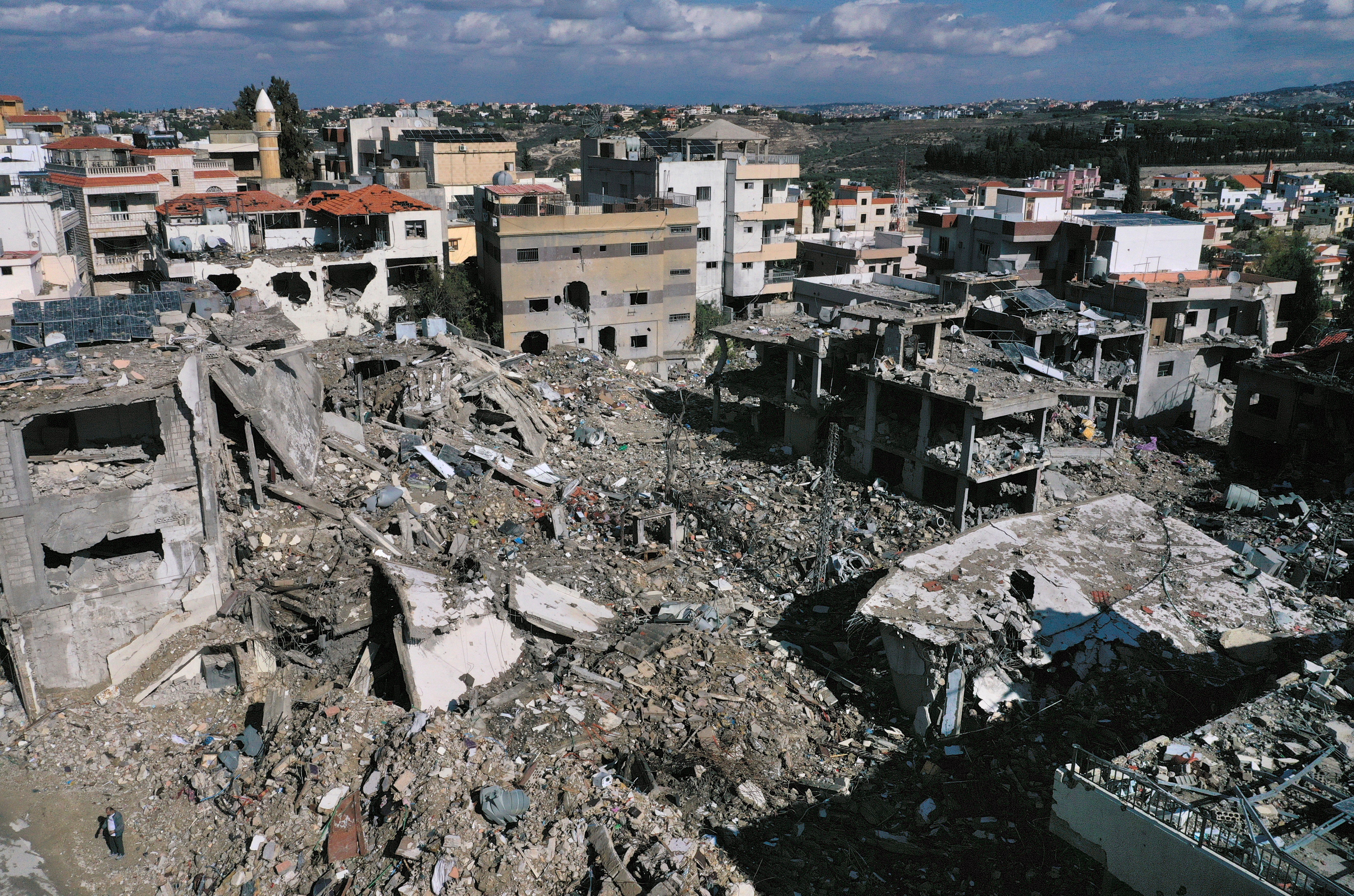Israeli airstrikes leave massive trail of destruction across Lebanon
For more than 60 days, Lebanese have watched stunned as Israeli strikes smashed into buildings, raising giant explosions and palls of smoke in the heart of the capital and other cities

Your support helps us to tell the story
From reproductive rights to climate change to Big Tech, The Independent is on the ground when the story is developing. Whether it's investigating the financials of Elon Musk's pro-Trump PAC or producing our latest documentary, 'The A Word', which shines a light on the American women fighting for reproductive rights, we know how important it is to parse out the facts from the messaging.
At such a critical moment in US history, we need reporters on the ground. Your donation allows us to keep sending journalists to speak to both sides of the story.
The Independent is trusted by Americans across the entire political spectrum. And unlike many other quality news outlets, we choose not to lock Americans out of our reporting and analysis with paywalls. We believe quality journalism should be available to everyone, paid for by those who can afford it.
Your support makes all the difference.For more than 60 days, Lebanese have watched stunned as Israeli strikes smashed into buildings, raising giant explosions and palls of smoke in the heart of the capital and other cities.
Now, after a ceasefire was reached this week between Israel and the Hezbollah militant group, Lebanese are returning to their homes and viewing the damage.
In Beirut’s southern suburbs, an area known as Dahiyeh, entire blocks in some areas are reduced to fields of shattered concrete where high-rise buildings once stood. Associated Press video caught the moment when a screeching rocket smashed into an apartment in Beirut last month, sending out a a plume of fire and sparks.
In the southern city of Tyre, a towering bank of black and white smoke rose from the heart of downtown like a storm front and drifted over the Mediterranean Sea after missiles hit. In the southern village of Flawiyeh, a car was left flipped onto its hood amid a grove of trees from the force of a strike.
Israel launched its intensified campaign of bombardment in Lebanon in late September, vowing to cripple Hezbollah and stop its barrages into northern Israel after months of more limited cross-border exchanges between the two sides. Those exchanges started when Hezbollah began firing rockets into Israel in solidarity with Hamas after its attack on Oct. 7, 2023.
The Israeli strikes were heaviest in cities, towns and villages around southern Lebanon and in the southern suburbs of Beirut, where Hezbollah has the strongest presence. But for the first time in years, central Beirut was also regularly shaken by explosions.
More than 1.2 million Lebanese fled their homes during more than a year of fighting – as did tens of thousands of Israelis on their side of the border.